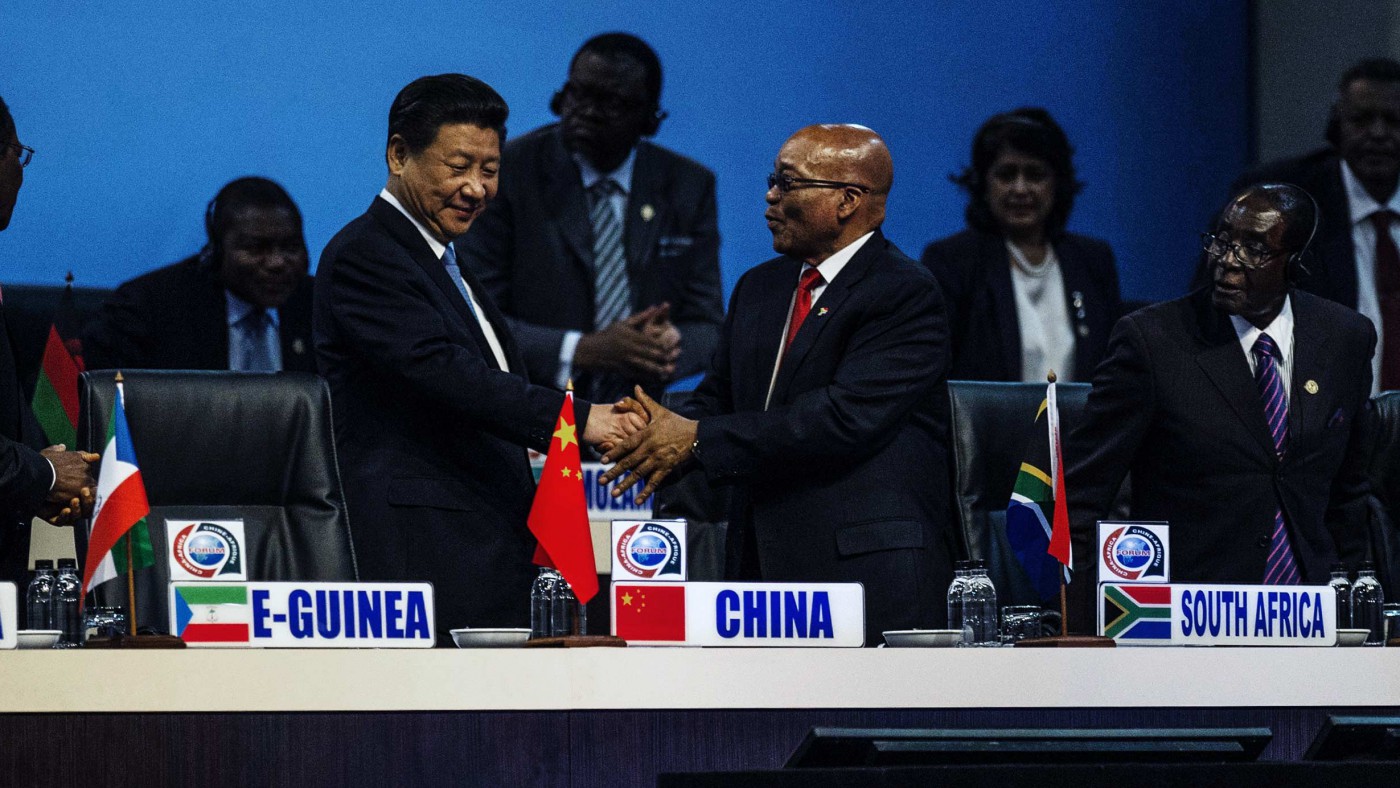This month, China’s President Xi Jinping arrived in Johannesburg for the Forum on China-Africa Cooperation (FOCAC) Summit. Upon arrival, he announced his government would be giving a US$60 billion development package to Africa. This is just the latest stage in a wider expansion into Africa by the Chinese government. For example, in the last decade, FOCAC summits alone have seen China increase its assistance from US$5 billion in 2006 to US$60 billion in 2015.

This latest pledge has resurrected questions about Chinese development assistance and the nature it takes. Unsurprisingly, much of the narrative is riddled with mythology, and has been well addressed elsewhere.
However, a persistent claim that also needs examining is that China’s Africa agenda is sustaining autocratic regimes on the continent. This narrative argues that China’s “non-interference” policy, which states that the country will never intervene in the internal affairs of a sovereign state (inadvertently or not), is counterintuitive to the development of good governance on the continent.
The Legatum Institute, an international public policy think tank, chose to run an assessment of this claim. Using the flagship Prosperity Index, Legatum assessed the top 28 country destinations of Chinese investment, using a total of 1697 deals to see just how true this claim is.
In particular, three areas which are often the focus of this critique were assessed: governance & types of government, regulatory systems, and the rule of law.
Governance & types of government
From Zimbabwe to Sudan, many of Africa pariah states have enjoyed cordial relations with China. Indeed, President Xi’s first stop en route to Johannesburg for the FOCAC summit was Zimbabwe, where upon arrival; he was feted to a 21 gun salute by President Mugabe.
But on balance, how frequent are China’s deals with regimes such as these in Africa? Using Legatum’s Legatum overall Prosperity ranking, a correlation between countries with a positive governance record and their likelihood to attract Chinese investment was instead found.
Indeed, when you divide the top 28 top country destinations for Chinese investment using Legatum’s component of government type – which looks at the extent to which a society is democratic or autocratic – the balance tips in favour of democratic societies such as Botswana and South Africa.
Adjust the figures for population size, and with odd outlier such as Zimbabwe, the disparity becomes even stronger in showing more investment flowing towards those countries of Africa that are best governed.
Regulations
A second critique is that the Chinese simply play by different rules, often preferring nations with weaker institutions and flouting regulations put in place to guarantee competition.
How true is this? Legatum used the same 1697 deals across 28 countries and measured it against its component of regulation, which seeks to capture the ability of national governments to formulate and implement sound policies for the private sector.
Once again, a similar trend is found, with Botswana, South Africa and Ghana – all countries with strong regulatory systems – at the top end of the scale, and countries with weaker regulatory systems such as Sudan and the Congo at the bottom end of the scale. This suggests that the stronger the regulatory environment is, the more likely that country is to attract Chinese investment.
Rule of law
A third and final critique is that China undermines the rule of law, with suggestions of concessions in the extractives industry granted through flouting of national mining codes, land laws and property rights.
Using the same set of deals and countries, this claim was examined using a component that assesses a society’s respect for property rights, the police and judiciary system, as well as the quality of legal safeguards.
Perhaps unsurprising at the stage, the same trend was found. Nations with strong rule of law such as Botswana, Namibia, South Africa and Ghana attracted more investment from China, whilst countries with weaker rule of law cultures such as the Democratic Republic of Congo, Central African Republic, and Chad did not.
So what can be concluded from this?
Whilst sound analyses of China’s expansion into Africa should be welcomed, we should also be wearily of mythology. What the above data illustrates is that similarly to Western companies, Chinese investment is incentivised by good governance systems, and commercial common sense.
Yes, there are many areas that require a focus of minds, such as institution building (many of the countries of the region that lead in governance still have a long way to go) and environmental impact (resources exported to China have elements of detrimental effects e.g. deforestation through timber exports).
The sooner we move away from imaginary problems, the sooner we can focus on these very real issues that need addressing.


